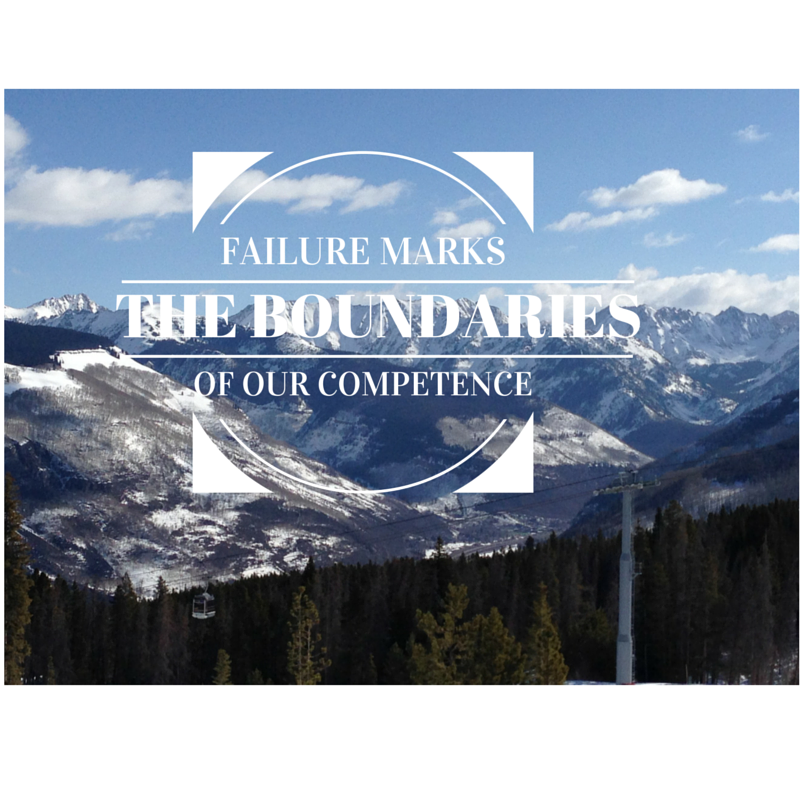Failure, we’ve all heard and seen the memes about failure and how it’s important to success. We’ve heard the guru’s talk about failure and not being afraid of it and how failure is the path to learning. Failure, being the antithesis to success takes up a lot of our conscious and unconscious time. We’re afraid of it. We avoid it. We spend time and money trying to understand it. We wallow in past failures. We define ourselves by our failures. Failing and the idea of failing is woven into the fabric of our lives. Therefore, the best thing we can do is get comfortable with it.
My objective in this post is to drop the dime on why failure is so important and not a bad thing in order to provide a little context that may just help you fail more.
Failure marks the boundary of our competence.
Stop and think about that for a second. Let it sink in. This entire post rests on the acceptance of this premise.
When we first learn something, we fail continuously. We have no competency, so failure is quick, painful and regular. As we learn or expand our competency, failure becomes less prevalent. Our knowledge and capabilities increase minimizing our mistakes and failures. However over time, something interesting happens. As we become more competent we stop pushing the boundaries and failure becomes less common and less acceptable. As our competence grows, we settle into the middle, where we are comfortable, rarely pushing the boundaries of competence. We stop failing.
In the beginning, when we lack competence, it’s OK to fail. It’s expected. But, after a while, failure is no longer perceived as part of getting better but rather a sign of incompetence. We then begin to look to avoid failure and playing on the edges. We settle into the middle.
I see this often in skiing. New skiers spend the first few days or weeks falling all over the place. There then becomes a point where they don’t fall as often and that becomes their new goal, don’t fall. They then start saying things like, “I only fell once today.” or “I didn’t fall all day.” What’s happening is the skiers are falling into the middle.
I am a PSIA Level 2 certified ski instructor and I fall or almost fall at least once a day. Why? I’m skiing at the edge of my competence. I’m not settling into the middle. I ski hairy, steep, fast, terrain and look to ski it better and faster, with tighter fall lines, improved stance, more aggressive, etc. All this is at the edge, not the middle.
Here’s the deal. If you’re not failing. If you’re not falling down. You’ve settled into the middle and when you’ve settled into the middle learning and growth almost completely stop. There is improvement in competency when you playing in the middle. Growth comes from the edges where we push ourselves beyond our competence.
Not failing isn’t succeeding. Success requires growth. There is little success without growth and there is NO growth by playing in the middle.
If you’re not failing, you’re failing. Play on the edges, get out of the middle. Failure is not incompetence, not failing is.
Failing is the path to success. The only path.

